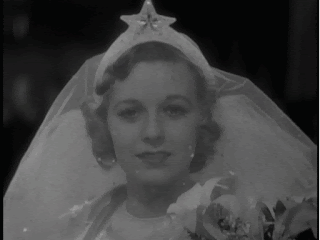(Stop me if you've heard this before, but) this was not what I expected at all. It's in a collection on the Criterion Channel of Cary Grant comedies that's leaving the channel in March, so I thought we'd check it out, but it is very much not a comedy. Obviously Grant and Hepburn worked together in The Philadelphia Story and Bringing Up Baby, which were classic screwballs, but this is more like (only much better than) Sylvia Scarlett, in that it's a drama as well as a love story. The holiday in question refers both to the fact that Grant's Johnny Case meets the woman he wants to marry (Julia Seton - a thankless role well-played by Doris Nolan) at a holiday in Lake Placid (before the film starts), and to the extended holiday from work he wants to take as soon as he's socked away some real money, so that he can "find himself." Jami said this theme was very Somerset Maugham-esque (I wouldn't know) and the play it's based on was a hit in 1928, so I see some post-WWI ennui in there. I was reminded of Leslie Howard's character in The Petrified Forest, although Grant is still at the point where he thinks he will find himself. A much sadder character is Julia's brother Ned (Lew Ayres - who played Dr. Kildare in a series of films, but is a Robert Vaughn lookalike (with Jack Lemmon overtones))
who is already an alcoholic, despite being the youngest of the Seton siblings. Who's the third? Katherine Hepburn, of course, playing headstrong elder sister Linda. We first see Johnny barging into the apartment of his friends, an older couple, a college professor and his wife (the second time in recent memory, after The Bishop's Wife, where college professors are presented as wise and genial sidekicks) to announce he's found the love of his life. They are skeptical, but clearly dote on him. Off he goes to meet her at her house, having theretofore only seen her at Lake Placid. He is confused when the cabbie drops him off at the address he's been given and it's an incredibly swank apartment house. He assumes she must work there, and goes in through the servants' entrance. But of course, it turns out the Setons are incredibly rich. This rather throws Johnny, who, you may have guessed, has an ambivalent attitude towards money. So does this film, as both Ned and Linda are clearly damaged and long to escape, while Julia progressively reveals herself to be a conformist who expects Johnny to come around, fit in, and work for Daddy. At first the father disapproves of Johnny,
but he knows Johnny's boss (also in finance) who speaks highly of him, so a wedding is planned. Linda, who is very taken with Johnny and loves her sister (Ned is not so taken) asks only that she be allowed to plan the engagement party, and that it take place in the "playroom" - a room that their (long dead) mother made her own on the top floor of their palatial residence, that is modestly furnished and cozy, with lots of musical instruments from Ned's past career as a prodigy, long abandoned. Of course, Julia gives in to Daddy's demand to have it instead by a massive affair attended by the best and brightest. Linda stays upstairs, and is accidentally discovered by Johnny's friends the Potters (whom, in a running joke, everyone mispronounces "Porter"). They have a gay old time until eventually Johnny is sent up to bring down Linda and gets sucked in. It's when Julia and Pa come up that things go south.
Will Johnny marry Julia, and accede to her demands that he give working for Daddy a couple of years at least? Or will he join the Potters on a trip to Paris (back in the days when there were funds for American professors to study abroad)? And what will become of Linda now that she (to her denial but Ned's insistence) has fallen for Johnny? You can probably guess. I have to say that this film took me a while to warm up to. At first I felt a bit annoyed at having to sympathize with Linda's rich-person problems,
but Hepburn's performance, in a role that could have descended into mawkishness, is masterful. And Grant avoids the mugging he did in his comedy collaborations with Hepburn, while at the same time getting to show off his gymnastic skills.
He, too, walks a line perfectly playing a character who is constantly upbeat and refuses self-pity, but who lost both parents as a teen and has a sadness underneath. Surprisingly affecting. All's well that ends well - at least for now (can two such damaged people find happiness?) - except for poor Ned, that is.





























































































